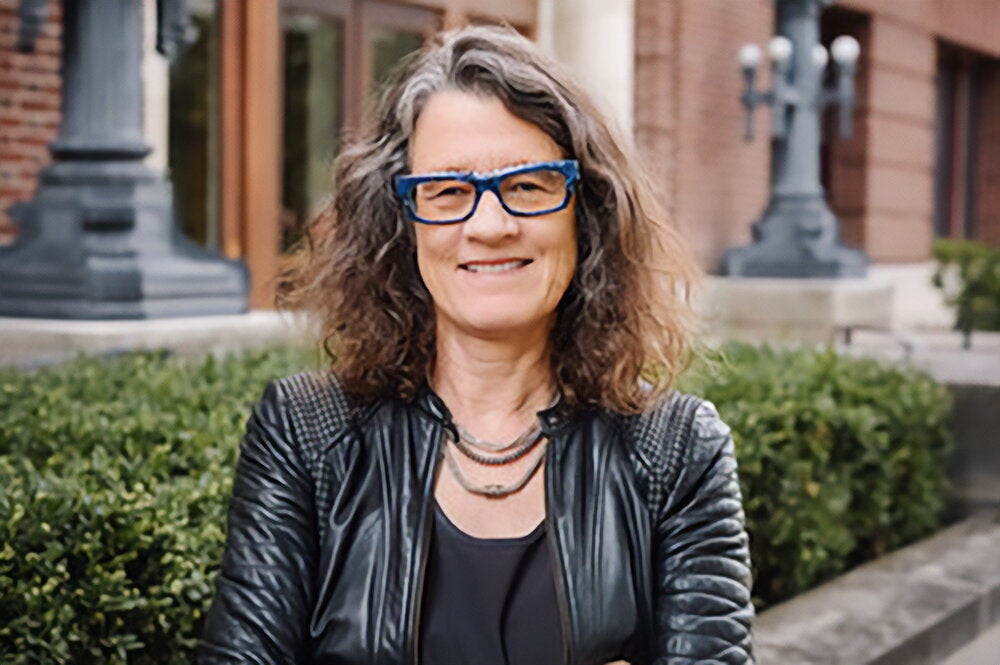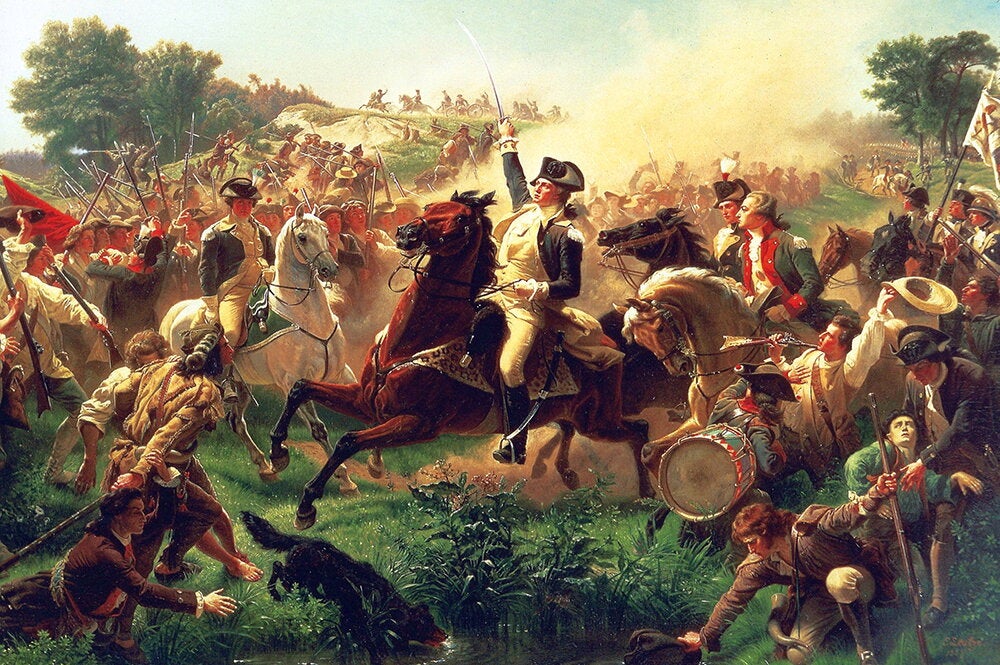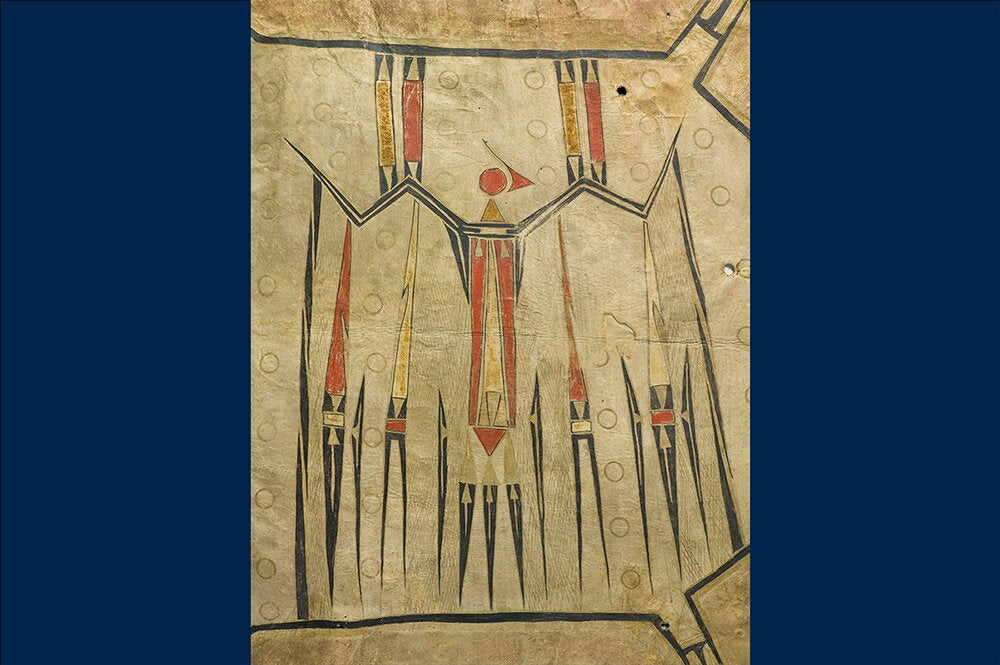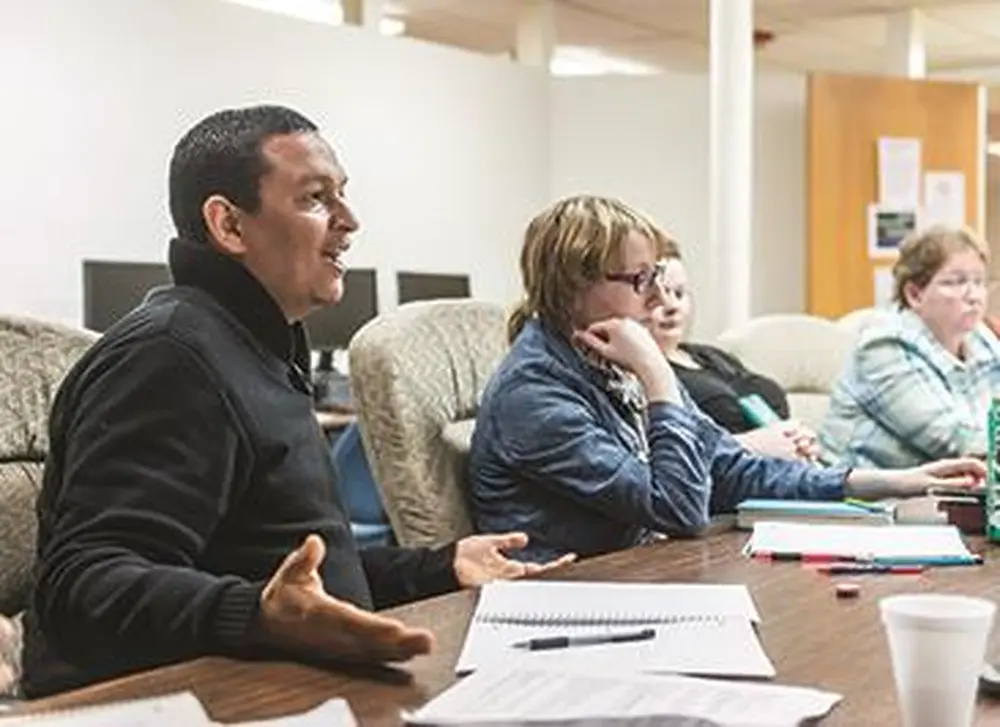
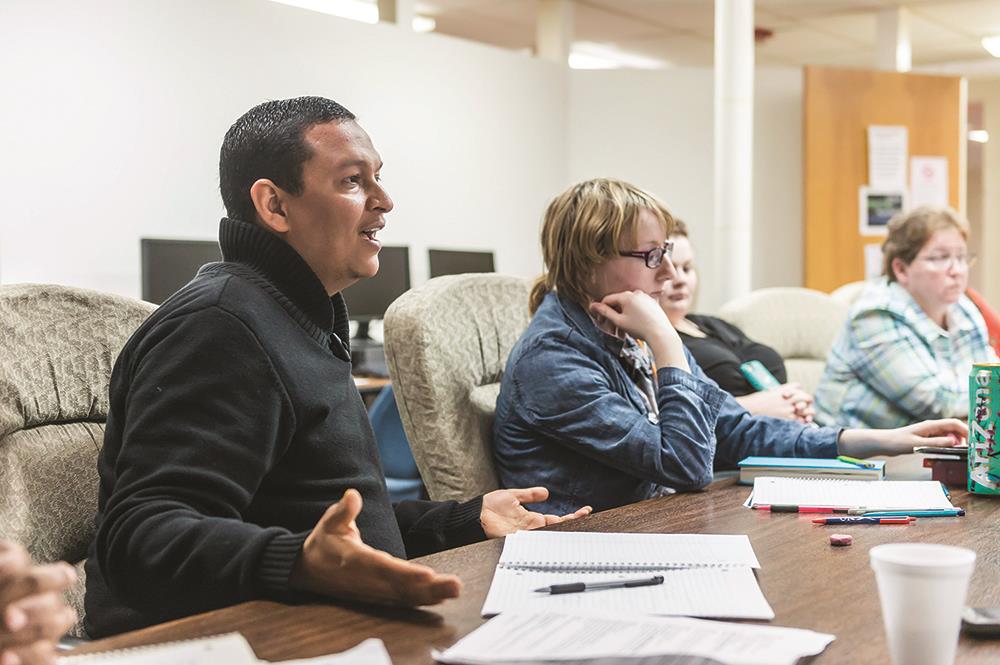
Stephanie Alumbaugh never forgot the day she presented a paper in junior high and was met with snickering and laughter. After that experience, Alumbaugh developed a fear of writing and presenting papers in public that stayed with her for years.
“That did not help my self-confidence, so I withdrew,” she said. “In school, I became just another student sitting there, filling a seat. I just existed.”
When Alumbaugh graduated from Normal (Illinois) Community High School in 1983, she considered going to Illinois Central College but did not have the money. Then she married and had children, and the dream of college evaporated. Until last year.
After being away from school for over 30 years, Alumbaugh learned about the Odyssey Project, a one-year program offered for free in Champaign-Urbana. The course is taught by University of Illinois professors, including many LAS professors, for six hours of college-level humanities credit. She applied and was accepted, but then the fear hit her.
“I thought, ‘Oh no, now what do I do? I’m going to have to write papers.’”
But Alumbaugh says the program was so much better than she ever imagined. She graduated in 2016 as Odyssey’s class valedictorian, which meant she also had to give a speech, conquering yet another fear. Equipped with confidence from the class, she plans to continue her education at Parkland College in Champaign.
The Odyssey Project, which is a Bard College Clemente Course in the Humanities, started in Chicago in 2000. It came to Champaign-Urbana in the fall of 2006 through the support of the U of I’s Illinois Program for Research in the Humanities (IPRH), the U of I Office of the Provost, and Illinois Humanities, a nonprofit humanities organization and the state affiliate of the National Endowment for the Humanities.
There are 40 Clemente Courses worldwide, and in recognition of the course’s impact, President Obama awarded it the National Humanities Medal in 2014. The project’s goal is to help students get past the most formidable barriers to education and establish a community of learning, said Angel Ysaguirre, executive director of Illinois Humanities.
The biggest obstacle is often money, he said. Many students cannot afford to go to college, but Odyssey is free, as are all of the books and materials. The program offers free childcare and transportation to and from class.
“They even provide dinner at the classes every Monday and Wednesday,” said Donna Clark, valedictorian for the 2014-15 school year. “How can you say no?”
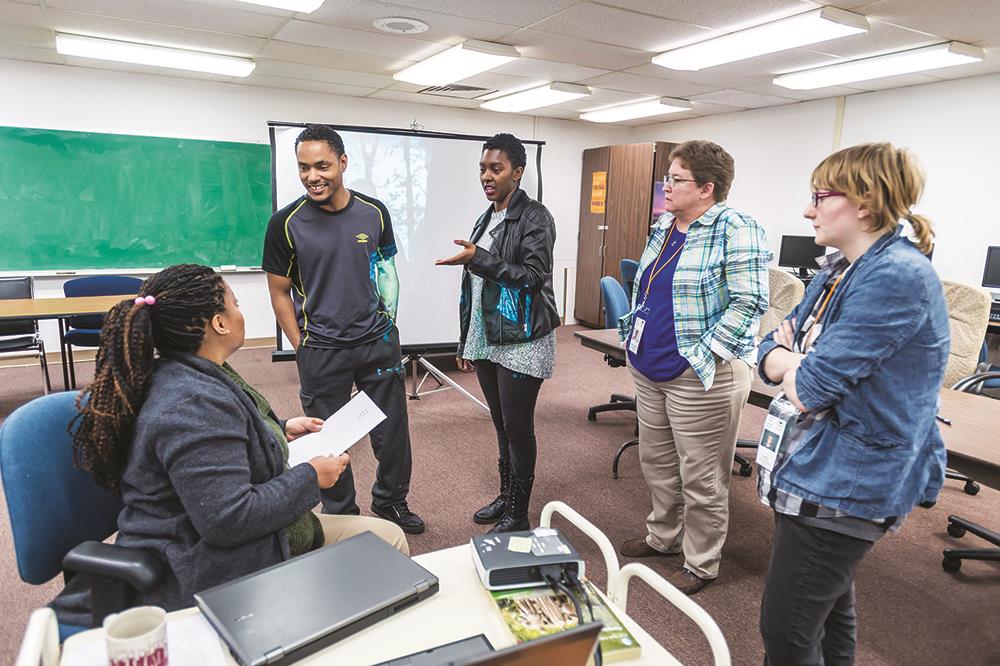
To qualify, students have to be at least 18 and be comfortable reading a newspaper. Students should also be living at or below 150 percent of the federal poverty level, but this is flexible, says Samuel Byndom, director of Odyssey in Champaign-Urbana. Odyssey covers five courses over the span of two semesters—American history, literature, philosophy, critical thinking and writing, and art history. Meeting twice a week, the classes typically have about 20 to 25 students.
The program gives students a sense of pride and worth, Ysaguirre said. For instance, he recalled one student who told him that “people looked at her differently on the train when she’s holding a book by Plato.”
Classes are diverse in both ethnicity and age, with students ranging from 18 to 75 years old. Byndom teaches the history class in Urbana, and he remembers an older man describe how as a child he witnessed authorities with shotguns deterring African-Americans from voting.
The younger students in the class were astounded,” Byndom said. “How could those things have existed?”
Odyssey classes are also eye-opening for the teachers, said Ysaguirre. He recalled a class where students were discussing the Greek play, Antigone—the story of a woman who decides to bury her brother in violation of the king’s decree.
“The conversation was about whether your ultimate allegiance is to your family or to the state,” Ysaguirre said. “There was an older, African-American woman in the class, who said she was dealing with the same question in her life.”
The woman’s daughter was a drug dealer, and she wouldn’t listen to her mother’s pleas for her to stop. Now the mother struggled with the same question that haunted Antigone: Should she turn in her daughter? Or should her allegiance be to her family?
“The Odyssey class transformed the way I look at Antigone,” Ysaguirre said. “This woman brought it to life in a way that it never had before.”
Donna Clark says she was afraid of failure before taking the Odyssey course. “But from the very first day, I knew this was what I wanted to do,” she said. “I went from zero to 100 very quickly, and it all started with Odyssey.”
After completing two semesters in 2015, Clark began taking classes in business administrative technology at Parkland College. She said it can be challenging juggling homework with a job, but her husband gives her a lot of space to hit the books on the weekends.
“He watches football, and I do homework,” Clark said.
In addition to the class in Champaign-Urbana, the Odyssey program is offered in three different locations in Chicago, and one class is given in Spanish. The Chicago program also offers a second year, which is more thematic and interdisciplinary than the first year, said Chris Guzaitis, director of the Odyssey Project in Chicago. She said the second year is intended to help provide a smooth transition to college life.
The Urbana campus hopes to add a second year as well because a higher demand is there, said Antoinette Burton, director of IPRH and an LAS professor of history. Currently, some teaching in the program is conducted by Dale Bauer, professor of English and gender and women’s studies. “The students in Odyssey leave with a profound sense of transformation,” Burton said.
For many, like Clark and Alumbaugh, Odyssey has become the pathway to a two-year or four-year degree. Both women have set their sights on becoming the first in their families to receive a college degree. Alumbaugh said she learned from reading Socrates in the Odyssey philosophy class that both education and experience make you who you are.
“Odyssey helped me become excited about school,” she said. “The classes are small, and they are taught by University of Illinois professors. You can’t beat that.”
Clark said education is now at the forefront of her life.
“Now,” she said, “I need to keep learning.”
*Editor's note: This story originally appeared in LAS News magazine (Spring 2017).
